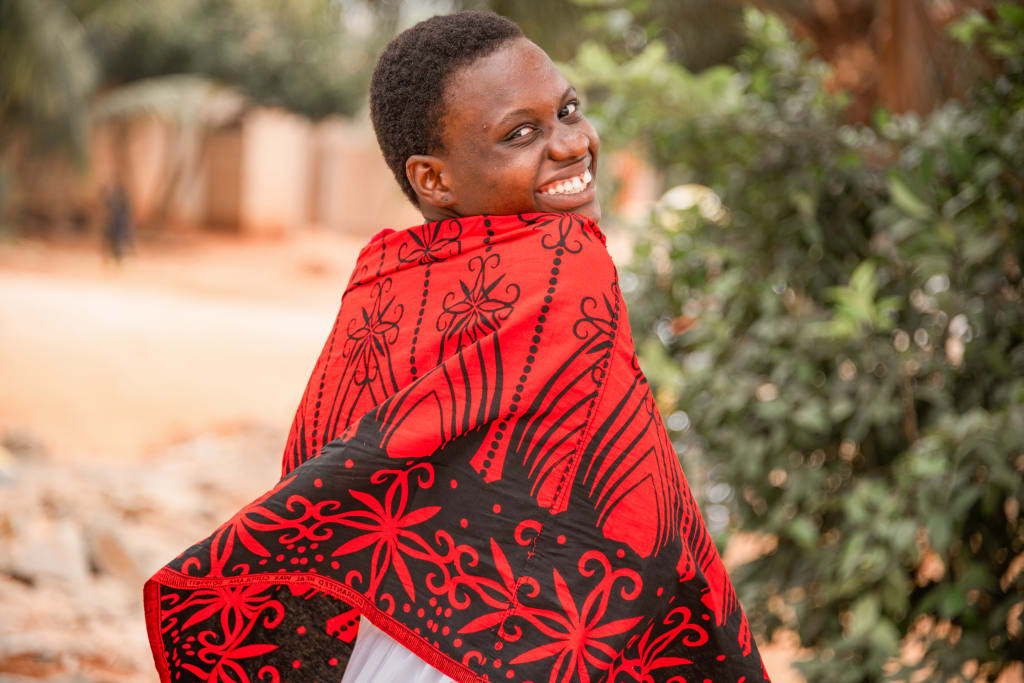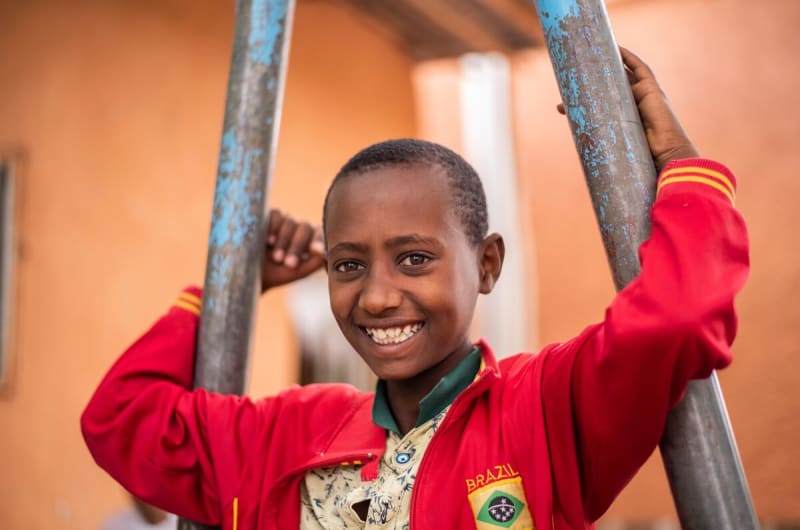Ladies, what’s your day like when you’re on your period?
I know it may be somewhat of a personal question or something you honestly don’t give much thought to when you’re not on it, but honestly, pause and think about it for a moment because it matters.
If you’re not currently experiencing poverty and are in a financially secure place, then maybe it looks something like this:
It’s 6:10 a.m. and you’re awake. You usually get up to the sound of your alarm at around 6:30 a.m. but this morning you feel some pain in your lower stomach that woke you up. You’re still a bit disoriented so you walk to the washroom and realize you’re on your period.

You’re not surprised as your period tracker app gave you a notification the day before that your period would be here soon, so you prepped and bought supplies in advance. You jump in your shower, wash up and then check your washroom cabinet for sanitary products. You remember that you have a yoga session at the gym after work, so you choose your menstrual cup and get dressed.
Your cramps are a bit painful, but you take an Advil or Tylenol after breakfast and bring the rest with you in case you need more.
At work you don’t think much about your period until you have to use the washroom to empty out and wash your menstrual cup.
The next day is a bit easier as you have no cramps and before you know it the week is wrapping up and your period is done. Only thing that changed much is you probably ate a bit too much chocolate this week.

The disparity
For many women and young girls living in Canada and not experiencing poverty, a monthly period is just a minor inconvenience in one’s daily life. But to a young girl living in a lower-income country, their period can disrupt their life in a multitude of ways for the duration of the week.
This was a reality for Adrienne, 15, and many of the girls in her community.
Adrienne lives in Togo, in a small 2-bedroom home with her parents, two younger siblings, aunt and her two cousins. Her father is a bricklayer, and her mom is a homemaker and takes care of them. The family’s monthly income is $35.
When Adrienne gets her period, her day start at 3 a.m.
Since she shares a washroom with seven other family members and a bedroom with her siblings, cousins and aunt, 3 a.m. is the only time she can get the privacy she needs to shower and change. The rest of her morning includes meditating on Bible verses, reviewing school material, cleaning and then heading off to school.

But when Adrienne got her first period things looked very different.
“When I had my first period, I felt so uncomfortable… I was also ashamed of talking about it to anyone.”
The shame Adrienne experienced caused her to isolate herself during her period. She started to avoid sports and team activities. Slowly her mood continued to worsen, and her mother grew concerned.
Thankfully, Adrienne was enrolled in the Compassion program and as soon as her behaviour changed her mother and the staff at the Compassion centre took the time to educate and encourage her.

“At the centre, they counselled me a lot on how to take care of myself, instructed me on hygiene practices, and bought period supplies for me… thanks to the continuous support of the centre, I finally understood that it was a grace for women to have period for them to procreate and give life. And I bless God for making me a girl. Without the support of the centre, I couldn’t have overcome this barrier.”
For Adrienne, her monthly periods are no longer shrouded in shame or filled with obstacles barring her from living a full life. But unfortunately, many girls in Adrienne’s community have a very different story.
The high cost of menstruation
Where Adrienne lives, one pack of ten pads costs $1.27. These ones are the lowest in quality but at the very minimum keep you clean. For better quality pads it’s $3.82. For a family that makes under $40 a month and may have multiple women in the home, sanitary products become a luxury and often make it to the bottom of the list in terms of priority.
Or, for many families they don’t make it on the list at all.
This means many young girls and women resort to using pieces of rags and washing it out. If they share one washroom with many family members or don’t have easy access to a safe toilet near their home, then finding the time and needed privacy to do this multiple times a day becomes even more difficult.
And if they have to walk a far distance to get water, just staying clean during this time of the month becomes a massive burden. This also doesn’t include the many young girls who may experience severe cramping or other gynecological issues like endometriosis, that make periods an unbearable time because of the pain and lack of access to proper medical care.
Lastly, all of this is magnified by the fact that many communities may have certain negative cultural beliefs and taboos surrounding menstruation.

So, instead of going to school, work and social activities, young girls whose families can’t afford the necessary products, stay home. Missing weeks of education and the opportunity to reach their full potential.
For Adrienne, her life has taken a completely different path from the one I explained above because of the generosity of Canadians who sponsor girls and ensure that their period isn’t a barrier to their holistic development and future success.
“I have never missed school for lack of period supplies because the centre has always provided me with them,” says Adrienne.
For her the answer is simple, “I wish God made me rich: I would provide to the needs of these girls, too.”





